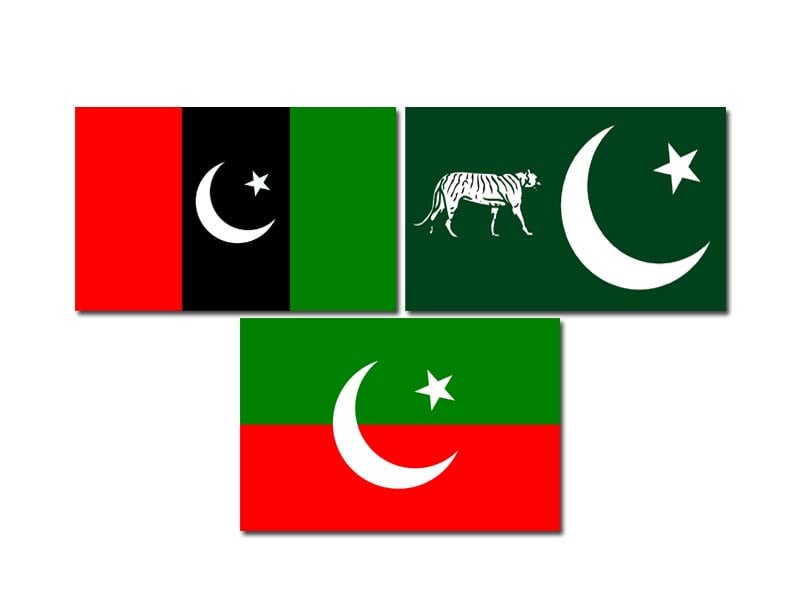- Copy to clipboard
- Moderator
- #1
- Jan 25, 2024
- 111,139
- 834
- Origin

- Residence

The elusive mirage of level playing field
Fairness in electoral races often sacrificed at the altar of power dynamicsIRFAN GHAURI AND TAHIR MALIK
February 01, 2024

As Pakistan gears up for its 12th general elections, the dream of a "level playing field" remains an elusive mirage. The historical pendulum of victimisation and strategic manoeuvring continues to shape electoral outcomes, leaving voters to grapple with the complexities of a political landscape where fairness is often sacrificed at the altar of power dynamics.
In the intricate dance of power dynamics, the hurdles faced by PTI shed light on a historical pattern of political victimisation and strategic manoeuvring.
In the wake of the events on May 9, where PTI supporters face allegations of breaching military installations, the party is confronted with unparalleled difficulties.
Prominent figures such as Imran Khan, Shah Mehmood Qureshi, and Pervaiz Ellahi now reside behind bars. Several influential members are either in hiding or are barred from participating in elections.
The PTI, having been stripped of its electoral symbol ‘Bat,’ now sees its candidates running independently. More than 50 per cent of these candidates are newcomers, a result of widespread defections from the party.
In the absence of the freedom to campaign publicly or on mainstream media, PTI candidates have turned to social media, attempting to navigate an increasingly challenging political landscape. Imran Khan and Shah Mehmood Qureshi were served 10 years in imprisonment on Tuesday under the Official Secrets Act in the cypher case, just days before the polls.
As if this were not sufficient, an accountability court on Wednesday delivered another blow by sentencing Imran Khan and his wife Bushra Bibi to 14 years in a state gift case, dealing a final blow to the hopes of voters and supporters.
This situation raises questions about the concept of a "level playing field" in Pakistan's political history. PTI's predominantly young, middle-class supporters argue that their party is undergoing the worst victimisation in the nation's history, claiming that no other party has faced such adversity. The claims are partially true.
A closer examination of Pakistan's political past reveals a recurrent theme of victimisation, with one party's misfortune often becoming another's patronage. The ebb and flow of power dynamics have seen roles reversed within a short span, with political parties, instead of learning lessons, aligning with powerful establishment to push their opponents into electoral oblivion.
Let's delve into a brief history of instances where the elusive "level playing field" was conspicuously absent in every election the country had:
PTI's Rise to Power (2018)
PTI emerged as the choice of powerful quarters, displacing PML-N from favour. Nawaz Sharif faced disqualification and conviction on corruption charges after the Panamagate scandal, paving the way for PTI's ascendancy.
Soon after he came to power in 2013, Nawaz Sharif lost the support of the establishment and was disqualified from office by the Supreme Court and was convicted on corruption charges as a result of Panamagate leaks that highlighted that hundreds of Pakistanis including the Sharif family had parked their money in offshore accounts.
Both the disqualification and conviction have now been overturned by the Supreme Court making elder Sharif a frontrunner for the covet office for the historic fourth time.
The PML-N government was paralysed by Imran Khan and Tahirul Qadri’s protests in 2014 and by TLP in 2017. The most lethal was TLP’s month-long sit-in at Faizabad, one of the main junctions that links the capital Islamabad with other cities.
The sit-in was organised to protest against purported changes in the oath of the members of parliament regarding the finality of the Prophet (Peace Be Upon Him) which TLP claimed was an act tantamount to blasphemy.
Meanwhile, the TLP entered the electoral arena brandishing a hardline religious stance, clinching the fourth-largest vote share in Punjab, the province which decides the fate of elections due to its population size and corresponding number of seats in the National Assembly.
Many electables either switched to other parties, mainly to PTI, or they returned the party ticket and contested as independents and later joined Imran’s party.
Leading up to the 2018 elections, PML-N experienced setbacks in votes, and reputation, and even witnessed attempts on the lives of key leaders. Its law minister Zahid Hamid resigned from the federal cabinet due to pressure from TLP, while Ahsan Iqbal faced an assassination attempt. Nawaz Sharif encountered a shoe being thrown at him during a public function.
Religious decrees against the party were issued, discouraging voters from supporting PML-N. Evidently, this created an uneven playing field for PML-N, leaving the path open for PTI.
